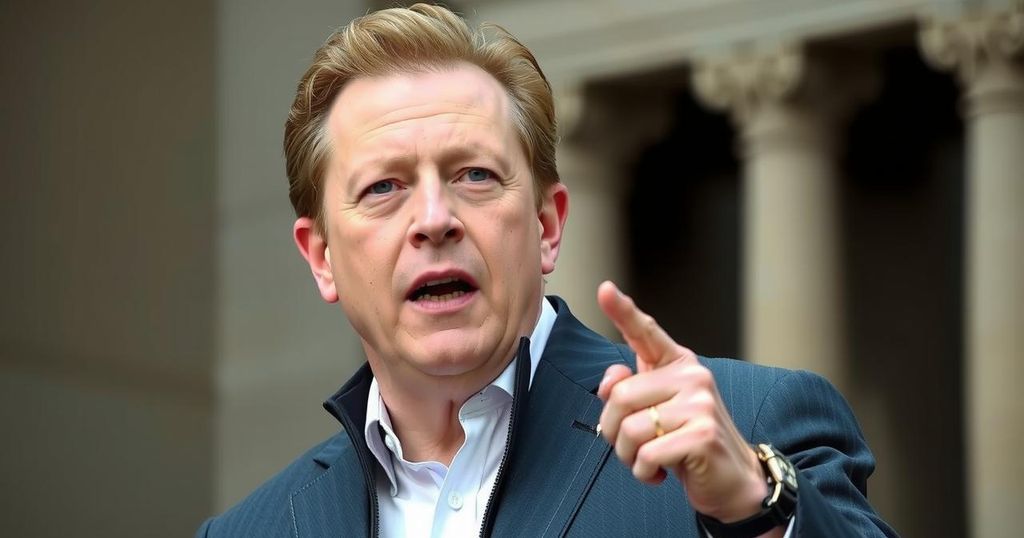Elon Musk’s Support for Germany’s AfD Sparks Controversy Over Election Influence
Elon Musk’s endorsement of Germany’s AfD has triggered controversy, with German officials claiming he is trying to influence the upcoming federal elections. Musk labeled the AfD as “the last spark of hope for this country” and advocated for their potential to drive economic prosperity. This incident has sparked a debate over the boundaries of free speech and political influence by wealthy individuals.
Elon Musk has recently attracted significant attention and backlash after expressing support for Germany’s far-right party, the Alternative for Germany (AfD), through a commentary published in the newspaper Welt am Sonntag. A spokesperson for the German government remarked on Monday that Musk’s actions reflect an attempt to sway the impending federal elections, which are set to occur in February 2024. The official acknowledged Musk’s freedom of expression but emphasized that such opinions could be perceived as nonsensical, particularly when aligned with extremist views.
Musk’s commentary, part of a larger dialogue on social media, described the AfD as “the last spark of hope for this country,” asserting that only the party could lead Germany toward a future characterized by economic success, cultural stability, and technological advancement. This statement has rekindled debates within German media regarding the implications of free speech and its limits, especially when the speaker has considerable influence.
The controversy surrounding Musk’s support for the AfD highlights the delicate balance between exercising free speech and recognizing the potential impact of such endorsements in politically charged environments. The portrayal of the AfD as extremist has been contested, with Musk arguing that the party’s leadership, which includes individuals from diverse backgrounds, contradicts extremist labeling. As Musk continues to navigate political commentary, his previous affiliations, including alignment with Donald Trump, paint a picture of a business magnate unafraid to engage in contentious political discourse.
In the context of rising political tensions in Europe, Elon Musk’s involvement in German political commentary underscores the influential role of billionaires in shaping public opinion and policy. The AfD has garnered attention for its far-right stance, causing fractious debates regarding freedom of speech. In the United States, Musk’s political leanings and activism have previously sparked discussions about influence over democratic processes, paralleling issues now emerging in Germany.
The episode involving Elon Musk’s support for the far-right AfD in Germany serves as a poignant reminder of the intersection between wealth, influence, and democratic processes. As Germany faces decisive elections, the government is concerned about external attempts to sway public opinion. Musk’s contentious remarks have ignited discussions about the limits of free speech, raising significant questions about the implications of celebrity influence in politics.
Original Source: www.hindustantimes.com




Post Comment